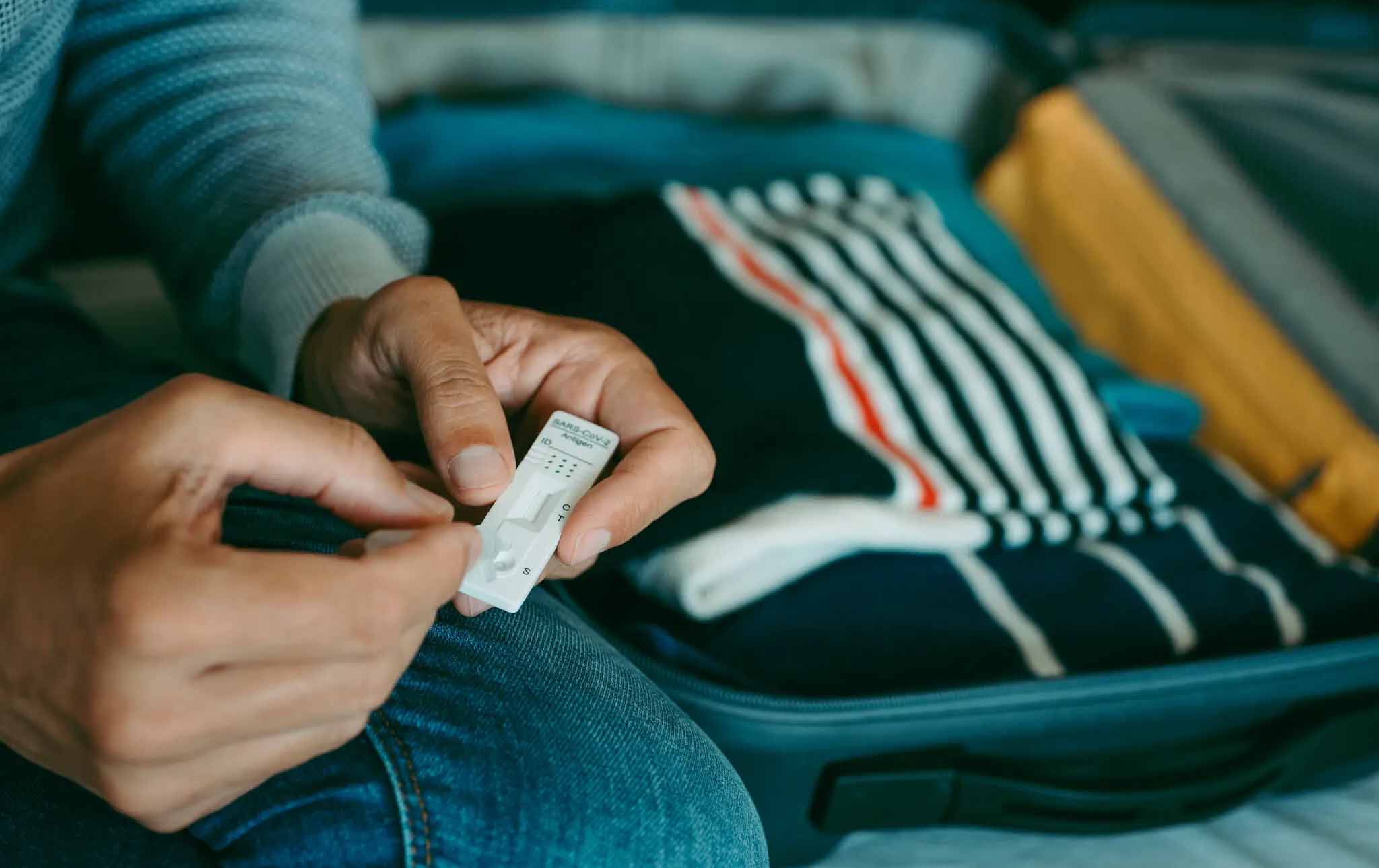New York.- At this stage of the pandemic’s long road, many of us are forgoing masks in places where we previously wore them and gathering indoors when we previously avoided them. But vacations throw new variables into everyone’s calculation of risk. People travel all over the country to see each other. Families huddle around dinner tables, with older and more vulnerable people sitting next to their younger relatives.
As we enter our third winter holiday season due to the pandemic, some doctors fear a seasonal increase in covid. In Europe, which many experts see as a proxy for Covid cases in the United States, cases are beginning to rise, prompting the European Center for Disease Prevention and Control and the World Health Organization to warn that it could be starting a new wave of infections.
“This is the holiday where everyone will come back together,” said Dr. Peter Chin-Hong, an infectious disease specialist at the University of California, San Francisco. With a little planning ahead, he said, family gatherings can be safe this year and resemble pre-pandemic times. “We have the tools for a normal life,” he said. “We just have to use them.”
Here’s what to keep in mind as you make your family’s holiday plans:
Plan around the highest-risk member of your family.
Individual risk tolerance may vary among your family members, but in general, plan around the person in your gathering who is most at risk. That means taking extra precautions if you have a family member who is older than 60, takes immunosuppressive drugs, has had a transplant or is a cancer patient, said Dr. Michelle Prickett, a pulmonary and critical care specialist at Northwestern Medicine.
Get the new booster.
“The most important way to protect yourself and others is to stay on top of your vaccinations,” said Dr. Joseph Khabbaza, a physician of pulmonary medicine at the Cleveland Clinic. The new bivalent booster is a critical tool for preventing infection, even though many people don’t even know it’s available. You can find the new booster in pharmacies and health centers across the country, and now anyone over the age of 5 can get it. (You can get your booster at the same time as your flu shot.)
Pay attention to your symptoms.
In the days leading up to a family event, and especially the morning of it, watch out for Covid symptoms: sore throat, congestion, cough, fatigue, headaches, and muscle pain. People infected with BA.5, the dominant variant of covid, are less likely to report losing their sense of taste and smell, but those are also crucial symptoms to watch for.
Use tests wisely.
The question is not whether or not to get tested before a family gathering; is when to test and how many times.
Experts differ on the exact timing and combination of tests you should take, but to get the most accurate measure of whether or not you’re contagious before an event, take a rapid home test just before. “You can have a little test party outside, where everyone is like, ‘Okay, we’re good now, we’re negative, we can come in and see mom,'” said Stuart Ray, an infectious disease specialist at Johns Hopkins. University School of Medicine. You should also get a quick test the day before, he advised.
Consider a “mini-quarantine.”
You may want to minimize your exposure in the week before you return home for the holidays, Dr. Prickett said. That means wearing a mask in indoor public spaces and also limiting time spent in crowds, such as scheduling trips to the grocery store when it’s not too crowded, he said.
Put on your mask while traveling.
While your risk may change slightly depending on the mode of transportation you take, Dr. Gounder did not recommend prioritizing one form of travel over another. But whether you’re taking a plane, bus, or train, be sure to wear a mask.
Ventilate your space.
If you can’t hold your event outdoors, you can still increase air circulation and reduce the risk of trapping and transmitting the virus in a confined indoor space. Even opening the windows can improve airflow. You can also purchase portable air purifiers with HEPA filters. These devices can be expensive (Wirecutter recommends one that sells for just under $200), but they can effectively capture some airborne virus particles.

